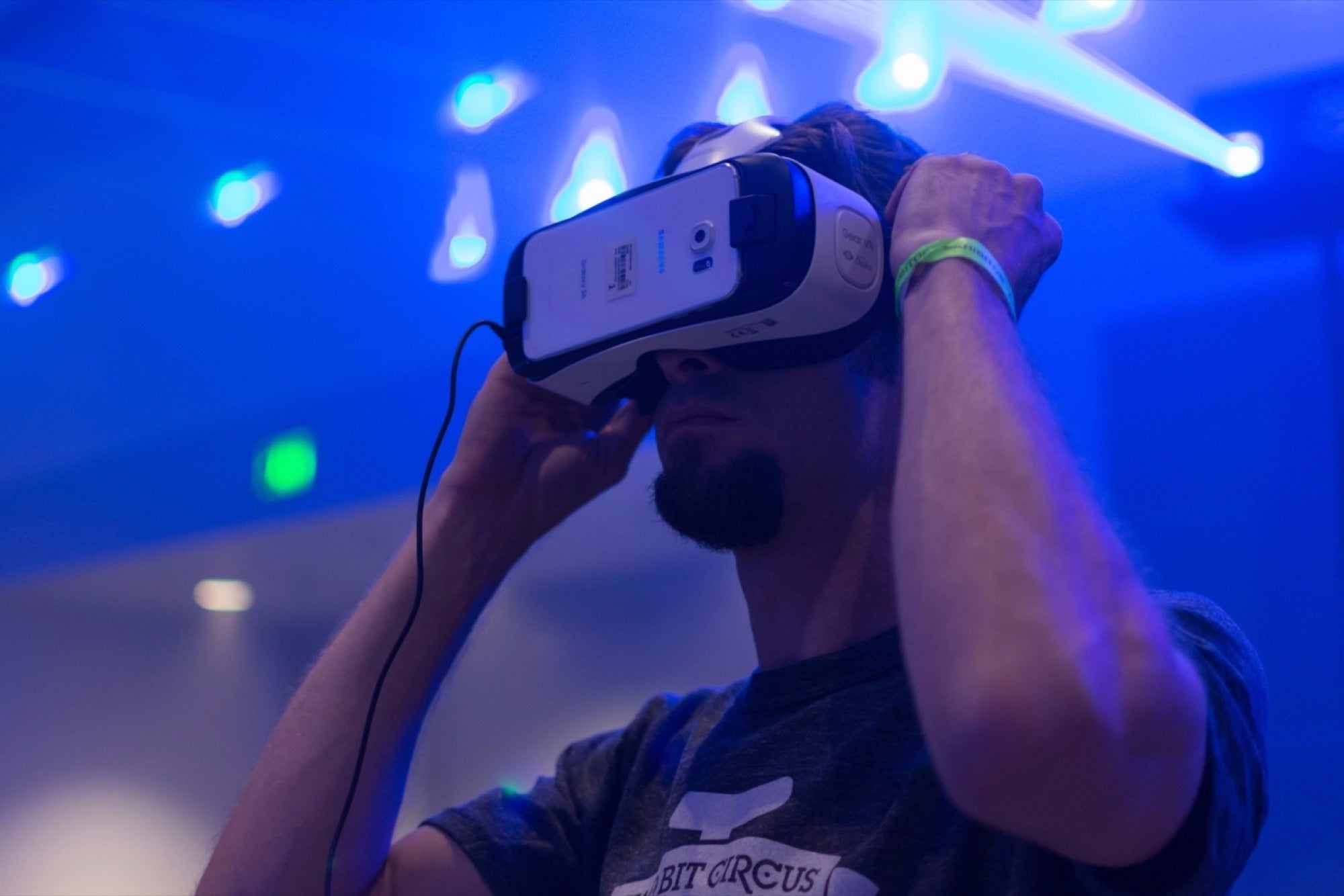Virtual Reality Is Proving a Powerful Vehicle for Disaster Relief, Social Causes Virtual-reality movies are more than just cool -- they can be a catalyst for good.
Opinions expressed by Entrepreneur contributors are their own.

This article is part of our Trends 2016 coverage.
In April, mere hours after a 7.8-magnitude earthquake struck Nepal, humanitarian and filmmaker David Darg found himself on a flight to Kathmandu. Along for the ride were six GoPro cameras, a tripod and a 3-D-printed camera rig -- all the gear he would need to shoot a virtual-reality film.
The resulting production, The Nepal Quake Project -- released within two weeks and narrated by Susan Sarandon -- was the first VR film shot in a disaster zone, giving viewers a 360-degree look at rescue efforts amid the ruins. Falling rubble had damaged one of the cameras, leaving a blank spot in the visual field, but even so, the film received tremendous media attention. People lined up to see it, then took out their checkbooks and asked what they could do to help the suffering Nepalese.
Until then, RYOT, the media company Darg co-founded in 2012, had released just one VR film, a simulated experience of solitary confinement, which had premiered at the Tribeca Film Festival the month he left for Nepal. That was a good experiment. But the Nepal film was a breakthrough that left some viewers in tears.
Since that "light-bulb moment," Venice, Calif.-based RYOT has made VR -- "the truest form of cinéma vérité," according to co-founder Bryn Mooser -- a cornerstone of its business. It has released three more brief VR documentaries, including Welcome to Aleppo, which takes viewers to the Syrian city's bombed-out streets, echoing with sniper fire.
RYOT's founders forged their bond doing aid work in Haiti following the 2010 earthquake. What began as a film-production company blossomed into a full-fledged media organization, with a news platform, RYOT Films and RYOT Creative, which makes videos for paying clients as well as pro bono clients like Pencils of Promise, a nonprofit that builds schools. COO Molly Swenson says RYOT is looking to fill two voids: providing a news site that doesn't "just make you feel hopeless and depressed," and addressing nonprofits' need to spread awareness of their work "after Anderson Cooper has left the disaster zone."
While hardware limitations remain the biggest obstacle to VR's mainstream adoption, the means to produce and distribute films are better than ever, thanks to YouTube adding support for 360-degree video this past March. "That was the moment we were waiting for," Mooser says.
RYOT says revenue for the first half of 2015 was more than double that of the same period the year before. As much as 80 percent of that increase was due to virtual reality. The VR audience is "the most captive audience possible, so the monetization opportunities are huge," Swenson says.
At press time, RYOT had 60 VR films in preproduction, including series in conjunction with another startup, Jaunt VR, which recently raised $65 million from The Walt Disney Co. and others. One joint production is a travel show that gives a tour of the Holy Land; a related "action component" seeks to drum up support for peace-building between Israelis and Palestinians. "What I care about more than the actual film is what you can build around it," Mooser says.
While large media companies are only beginning to harness the potential of digital video, young filmmakers and agile startups are forging ahead with new technologies. The world's first virtual film festival launched a 10-city North American tour in Portland, Ore., in August.
Virtual reality, Swenson says, "is not a gimmick. It's going to change our industry."










